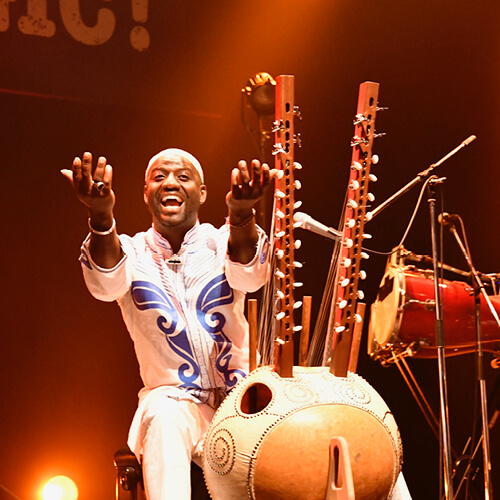When Seckou Keita came to the UK in the late 1990s at the tender age of 21, he had only left his native Senegal twice before (to play in Norway and India). He spoke little English, was neither famous (yet) nor particularly experienced. Twenty years later, Seckou was named BBC Radio 2 Folk Musician of the Year, a startling choice for such a blue-blooded British institution. “For me, it was an amazing kind of recognition, for my participation in the British music scene starting with Baka Beyond, all the folk people I worked with years back…until I reached a new level with Omar Sosa, with my own solo music, with AKA Trio, with Catrin Finch and the Lost Words Project. And then suddenly it was like ‘Oh!’”
In that one exclamatory ‘Oh!’ lies all the joy, surprise and relief of a man who sets out on a long journey, with no map, compass or even destination to speak of, and then realises one fine day that he has arrived. Not even the most skilled clairvoyant in Seckou’s home region of Casamance in southern Senegal, could have foretold such a journey. A life in music, yes: Seckou was born into a family of griots or hereditary bards, so that was entirely predictable. But a life in music that widened the horizons of the kora, involved collaborations with leading musicians of every stripe and earned the love and respect of audiences all over the world, all that could hardly have been imagined.




